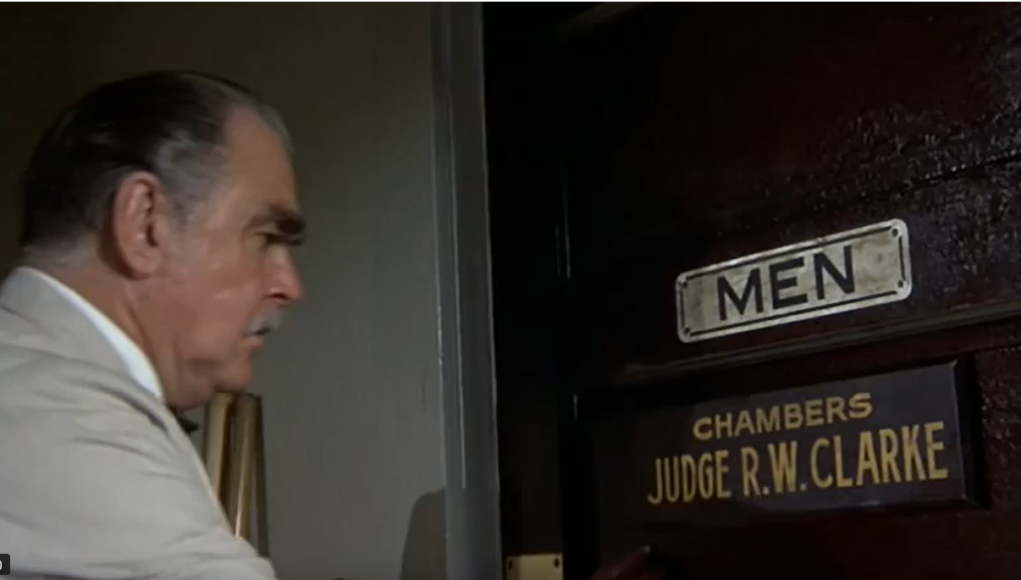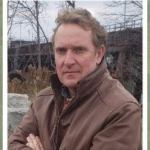Where to start? I have so many things to say on the un-elected activist judges who are destroying democracy (small d) while claiming to save it. Recall what I said earlier about Judge Merchan in his trial of Donald Trump. Merchan was born in Colombia. To recap briefly from that article, my family moved to Paris when I was 10 and we came back to the United States when I was 13. Despite attending a French boarding school, and going to French summer camp, I still saw myself as an American. The fact that Merchan came to the United States at age six does not put him in the same realm as other Americans. Yes, I do see him as a lesser kind of American because he will not feel the same sort of loyalty to the United States that someone whose family has lived here for generations will have. Supposedly, Saint Thomas Acquinas believed it took two to three generations to become a citizen. “Thirdly, when any foreigners wished to be admitted entirely to their fellowship and mode of worship. With regard to these a certain order was observed. For they were not at once admitted to citizenship: just as it was law with some nations that no one was deemed a citizen except after two or three generations, as the Philosopher says (Polit. iii, 1).”
While three generations seems a bit long to me, I understand from where that sentiment comes. As much as I loved France after living there, I did not see myself as French. I believe that immigrants coming here (even young immigrants) are strongly influenced by their roots in their home countries. Lots of terrorists were second generation U.S. citizens. They don’t magically shake those old ties off the moment they set foot on American soil.
It is worth noting that a full third of the D.C. District Judges were not born in the United States. They hail from Jamaica, India, Uruguay, Canada (but by way of Egypt), and Trinidad & Tobago. Do you expect Trump to get a fair trial from them? If you believe so, I have a bridge in Brooklyn I’d like to sell you.
Years ago, I was out of college and working a dead end job in customer service. I was looking to go back to school and contemplating going to law school. A few things happened that dissuaded me from following that path. The first was meeting a new law school graduate on a night out in Washington, D.C. and him telling me how much he hated being a lawyer. Another thing was that I attended a dinner party (also in D.C.) with my parents and my grandmother. In conversation, somehow Jimmy Hoffa’s name came up. I said something about Jimmy Hoffa essentially being mobbed up himself. One of the older gentlemen sort of shut me up by saying, “No, he wasn’t, and I should know! I was the judge who presided over his trial.” The judge then preceded to give a brief lecture on Jimmy Hoffa. Now, I had been reading books by former FBI Special Agents on Hoffa, and former attorneys who had worked in Robert F. Kennedy’s “Get Hoffa Squad”. The good judge was basically telling me that they were all wrong, but he (the judge) knew the truth! (If you believe that Hoffa wasn’t up to his neck with mafiosi, read “I Heard You Paint Houses: Frank The Irishman Sheeran & Closing the Case on Hoffa” by Charles Brandt. Frank Sheeran claims that he did hits for the mafia before being assigned over to work for Jimmy Hoffa. The first thing Hoffa ever said to Sheeran was “I heard you paint houses.” Which apparently was code for murder because of the blood splatter involved in a homicide).
In my opinion, what this judge at the cocktail party was telling me was that he believed his own bull. If he didn’t allow some evidence from the prosecution into the trial, then it never existed in his mind. However, the FBI and the street cops working the cases had a different belief. I think that may have been part of the reason I went into the Border Patrol. I wanted to see how things looked on the ground first hand and not through the prism of a courtroom where one side or the other is trying to distort the truth to win their case.
Another story my mother told me years before when she was working real estate. One of her fellow real estate agents was a police officer who did real estate on the side. One day, the cop had been driving along when a vehicle coming in the opposite direction crossed over the double yellow line and hit him head on. Fortunately, no one died, but the cop was all messed up. The woman driving the other vehicle was the wife of a prominent attorney in the Annapolis area, and she had been drunk as a skunk. The case went to trial. According to the cop, he was placed on the witness stand and grilled. The husband attorney asked him what he did when he saw the car coming at him. He responded, “I threw up my hands and said shit!” The judge fined the cop something like $1,000 for contempt of court because he had cursed. I no longer recall the end verdict, but the judge and the attorney were friendly and they made sure the wife of the attorney didn’t get the book thrown at her.
That’s my way of saying that judges are human, full of the same pride and prejudice as any one else. They are not saints, and many of them do not check their personal beliefs at the door to the courtroom. They should be treated with deep skepticism. “Absolute power corrupts absolutely.” When were any judges brought to heel for their outrageous behaviors. (There used to be an entire website devoted to judges behaving badly, but that appears to be down now).
In fact, the original judge who gave us judicial review may have been one of the most poorly behaved people. Thomas Jefferson and Chief Justice Marshall were cousins, but they didn’t like each other. Jefferson, “When conversing with Marshall I never admit anything. So sure as you admit any position to be good, no matter how remote from the conclusion he seeks to establish, you are gone. So great is his sophistry you must never give him an affirmative answer or you will be forced to grant his conclusion. Why, if he were to ask me if it were daylight or not, I’d reply, “Sir, I don’t know, I can’t tell.” Jefferson thought that making Marshall a judge would be a good way of keeping him from doing any damage. I bet he regretted that suggestion.
Later, when Marshall had seized judicial review despite it not being written into the Constitution, Jefferson had some things to say about that: “To consider the judges as the ultimate arbiters of all constitutional questions [is] a very dangerous doctrine indeed, and one which would place us under the despotism of an oligarchy. Our judges are as honest as other men and not more so. They have with others the same passions for party, for power, and the privilege of their corps. Their maxim is boni judicis est ampliare jurisdictionem [good justice is broad jurisdiction], and their power the more dangerous as they are in office for life and not responsible, as the other functionaries are, to the elective control. The
Constitution has erected no such single tribunal, knowing that to whatever hands confided, with the corruptions of time and party, its members would become despots. It has more wisely made all the departments co-equal and co-sovereign within themselves.”
—Thomas Jefferson to William C. Jarvis, 1820. ME 15:277
(There are many more good quotes from Thomas Jefferson on judicial review in that article).
Please remember that Alexander Hamilton wrote in Federalist 78 that the judiciary was to be the weakest branch of government IF it were to work as he intended: “Whoever attentively considers the different departments of power must perceive, that, in a government in which they are separated from each other, the judiciary, from the nature of its functions, will always be the least dangerous to the political rights of the Constitution; because it will be least in a capacity to annoy or injure them. The Executive not only dispenses the honors, but holds the sword of the community. The legislature not only commands the purse, but prescribes the rules by which the duties and rights of every citizen are to be regulated. The judiciary, on the contrary, has no influence over either the sword or the purse; no direction either of the strength or of the wealth of the society; and can take no active resolution whatever. It may truly be said to have neither FORCE nor WILL, but merely judgment; and must ultimately depend upon the aid of the executive arm even for the efficacy of its judgments.
This simple view of the matter suggests several important consequences. It proves incontestably, that the judiciary is beyond comparison the weakest of the three departments of power1; that it can never attack with success either of the other two; and that all possible care is requisite to enable it to defend itself against their attacks.”
Everyone likes to say that we declared independence from Britain because of “taxation without representation”. That’s a gross oversimplification. In fact, if you pick up a copy of the Declaration of Independence, the first things that Jefferson complained about were not taxes at all, but laws! “He has refused to assent to laws the most wholesome and necessary for the public good.” Jefferson doesn’t get around to “For imposing taxes on us without our consent” until roughly 20 paragraphs in.
When it came to our Civil War, it was largely caused by the Taney decision in the Dred Scott case when Chief Justice Taney decided that “Congress lacked the power to prohibit slavery in any federal territories, making significant portions of the Missouri Compromise of 1820 unconstitutional.”
Now, here is a simple proposal, and I don’t claim to have come up with it myself. Others like Newt Gringrich have proposed doing what Congress did in the wake of the Marbury Vs. Madison decision by passing the Judiciary Act of 1802, “The 1802 Act not only redefined the structure of the courts but also abolished several judgeships that Jefferson and his supporters believed were politically biased and illegitimate.”

However, as a child of the 70s, I have another proposal. The march of judicial over reach started in the 1930s, and accelerated with the Supreme Court weighing in on ever more social factors, i.e., prayer in schools, affirmative action. I believe that absolute power corrupts absolutely, and nothing is being done to rein in the courts. Their egos are swelling and they are unlikely to rule against anything that will give the judiciary more power. Their thirst for grabbing power seems to have coincided with their receiving their very own building. Perhaps, it is time to move them out of the Supreme Court building and put them back in the Capitol Building like they used to be. I remember listening to NPR years ago (90s) when they talked to a psychologist about how to get Congress to compromise on some budget bill. The psychologist said to take away their preferred parking spaces until they got it resolved. The psychologist claimed that simple act would deflate a lot of egos and lead to more compromise. So, with that in mind, I propose the “Walking Tall” solution.
Mark Twain supposedly said that judges should have a roll of toilet paper put next to them to remind them that they are human too. We need to take these judges egos down a notch.
20 year veteran of the U.S. Border Patrol. Author of "What Bridge Do You Work At? Or, Kids Are Cute; Therefore, Open Borders" & "East into the Sunset: Memories of patrolling in the Rio Grande Valley at the turn of the century". Books are available at Amazon, Barnes and Noble, as well as Thrift Books.
Master's Degree in Justice, Law and Society from American University.
Grew up partly in Europe.













